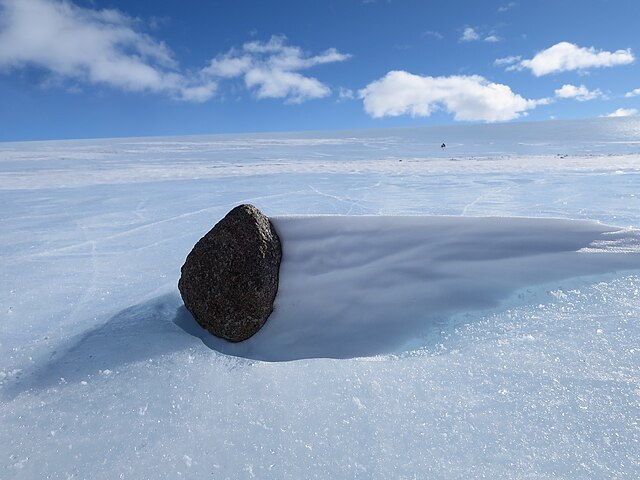News release
From:
Thousands of meteorites could sink more quickly into Antarctic ice as a result of warming temperatures, accelerating the inaccessibility of many of these samples of extraterrestrial material, suggests a study published in Nature Climate Change.
Meteorites that originate from different extraterrestrial bodies such as the Moon, Mars or other larger asteroids are an important source of knowledge for planetary science. More than 60% of the meteorites in current collections have been collected from Antarctica and it has been estimated that 300,000–850,000 meteorites have yet to be collected from the ice sheet. However, climate change threatens this archive, as meteorites sink into the ice, making them inaccessible to researchers.
Veronica Tollenaar, Harry Zekollari and colleagues combine a machine learning method that estimates the distribution of meteorites in Antarctica with regional model simulations of climate change to project the loss of meteorites under different climate change scenarios. They find that over the coming decades, about 5,000 meteorites could be lost every year, regardless of the emission scenario. The authors indicate that under current policies, which may result in a warming of 2.6–2.7 °C above pre-industrial levels, 28–30% of the meteorites in Antarctica could become inaccessible. This number increases to up to 76% under a high-emission scenario. They show that some regions, such as Grove Mountains and Enderby Land in East Antarctica, see particularly strong loss of meteorites, potentially up to 50% in dense meteorite collection areas.
Meteorites provide large samples of celestial material without the need for costly collection missions to these different bodies, and the authors conclude that concerted efforts are needed to collect these meteorites in Antarctica before they are lost as a result of climate change.



 International
International



